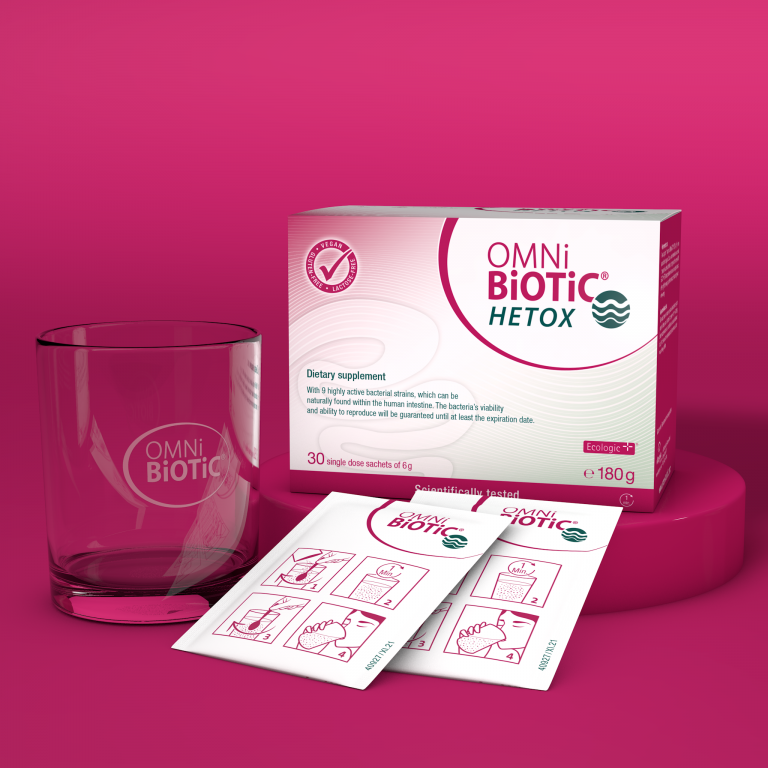Premature babies do not have an easy start in life. Due to their immaturity and the associated increased risk of developing life-threatening complications, many premature babies have to be intubated immediately after birth, fed by parenteral nutrition and given antibiotics. Research is being conducted worldwide to improve the chances of survival and the health of premature babies in the long term. The latest research results show that the intestinal microbiome has a special significance for the healthy development of premature babies.
Supporting Premature Babies
Worldwide, 11% of newborns are born prematurely every year. Children born before the 37th week of pregnancy are considered premature. 35% of all premature babies are not viable due to their immaturity. In addition to low birth weight, gestational age plays a major role. The earlier a child is born, the less mature its organs and vital functions are.
As a rule, the lungs, heart, brain, kidneys, intestines and immune system of premature babies are not yet fully up to the demands of life outside the womb. Thanks to modern medicine, even very premature newborns have a good chance of survival.
- extremely premature babies (birth up to 28th week of gestation) – survival rate around 67
- very preterm babies (birth between 28th – 31st SSW) – survival rate around 95%
- moderately premature babies (born between 32nd – 37th SSW) – chance of survival around 98%.
Nevertheless, premature babies are at high risk of developing (consequential) health problems. Scientists found that the composition of the intestinal flora has a significant influence on the maturation of premature babies.
Gut flora of premature babies
It is undisputed that the intestinal flora (microbiome) plays a central role in our health. Already during birth (vaginal birth), the intestines of newborns are colonised with various strains of bacteria that are essential for the development of a healthy intestinal flora. In recent years, numerous scientists have increasingly researched the gut flora of premature babies. In addition to the still weakly developed gastrointestinal tract, scientific studies show that many premature babies have a disturbed intestinal flora (dysbiosis). On the one hand, there is a delay in the colonisation of commensal intestinal bacteria and on the other hand, they have an increased number of potentially pathogenic bacteria. Due to the colonisation of the “bad” bacterial strains, the “good” intestinal bacteria such as lactobacilli and bifidobacteria are inhibited and restricted in their growth.
In addition, the premature gastrointestinal tract has a very thin single-layered intestinal mucosa and increased permeability, which allows pathogenic germs to enter the bloodstream.
The immune system of premature babies is also usually still very immature. This means that their immune response of the specific and non-specific immune system is limited. Premature babies have a significantly reduced number of immune cells, which are essential for the defence system against pathogenic germs, viruses and bacteria.
There are different reasons that can cause necrotising enterocolitis (NEC). Intestinal dysbiosis and impairment of the immune system also play a role. NEC is a life-threatening inflammatory bowel disease that affects 90% of premature babies. In the course of the disease, intestinal mucosal cells die – even an intestinal perforation is possible, which can lead to peritonitis.
From an immunological point of view, the intestine is a crucial organ. The colonisation of the intestinal flora is of immense importance for the formation of the entire immune system from the beginning of life. That is why we should be more aware of the gut flora of premature babies.
Factors that promote dysbiosis in premature infants
In order to ensure the survival of premature babies, medically necessary measures are required, such as a caesarean section (sectio), oxygen supply by intubation, special nutrition and/or the administration of antibiotics. However, these factors additionally favour intestinal dysbiosis. The utensils or the drugs are usually applied and administered immediately after birth, and are often the first entry points for microorganisms. The place of stay (hospital) and the length of stay also play a role in the colonisation of the microbiome.
C-section vs. Vaginal Birth
In the womb, the babies’ intestines are almost germ-free. The way in which the newborns are born is also decisive for the composition of the intestinal flora. Children – whether term or premature – who are delivered by planned caesarean section differ in their gastrointestinal microbiome from children who are born naturally. This difference contributes significantly to the healthy maturation of the child.
Newborns born naturally come into contact first and foremost with the mother’s vaginal and faecal bacteria. Babies born by caesarean section are first exposed to bacteria from the hospital. Comparatively, newborns born by caesarean section have a lower number of bifidobacteria and lactobacilli, but the number of potentially pathogenic bacterial strains is higher than in children born vaginally.
Since more than half of all premature infants see the light of day by means of sectio and usually have to be treated immediately with antibiotics, their intestinal microbiome is particularly imbalanced. Breast milk production is also often delayed after a caesarean section, so the newborns are fed with breast milk substitute.
Baby Formula vs.Breastmilk
According to current knowledge, breast milk is the best source of nutrition for newborns. It is rich in fatty acids, carbohydrates, immune cells and contains essential intestinal bacteria – such as bifidobacteria and lactic acid bacteria – which settle and multiply in the baby’s intestinal flora during the breastfeeding process.
Because premature babies are concerned with weight gain and healthy maturation, they usually need a special diet food that is high in calories and supports digestion. In addition, some mothers are unable to breastfeed their newborns. On the one hand, this is due to the lack of milk production; on the other hand, the sucking and swallowing reflex is often not yet fully functional in very premature newborns, so they have to be fed via a tube. Since these forms of nutrition hardly contain sufficient commensal intestinal bacteria, these cannot compensate for the imbalance (dysbiosis) in the premature intestinal microbiome.
Antibiotics
Antibiotics are usually given to premature babies immediately after birth. They are given both prophylactically and for a medical indication to prevent or cure neonatal infectious diseases. The duration of administration is usually not limited to the stay in hospital. It is not uncommon for antibiotic treatment to be continued even after discharge, as a precautionary measure to protect the children from infections that threaten them due to their immature immune system.
Unfortunately, this has serious consequences for the composition of the intestinal flora. Studies show that premature babies who had to take antibiotics for a long time had a massive disturbance of the microbiome. That is why our experts would recommend that you support you baby with probiotics for premature babies.
Positive effect of probiotics on premature babies
The word probiotic comes from the Greek and means “for life”! In view of the often very immature gastrointestinal tract and the factors that have an additional negative influence on the intestinal microbiome of premature babies, studies show the positive influence of scientifically tested probiotics.
Multispecies probiotics contain viable and proliferative intestinal bacteria that can be administered both protectively and in support of medical treatments. Scientific studies show that premature infants who are provided with probiotics for premature babies can positively influence the development and severe course of inflammatory bowel diseases (IBD), the healthy structure and essential functions of the intestinal microbiome are promoted and the immune system can develop adequately and in an age-appropriate manner.






























